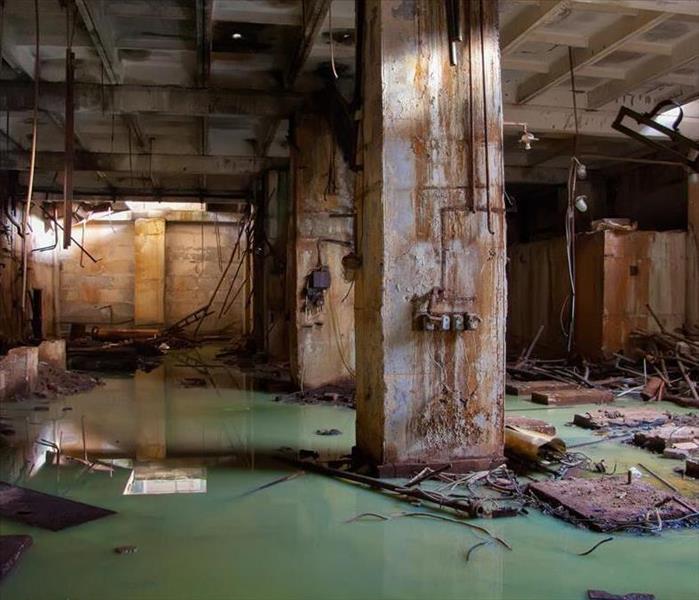When Is a Flooded Basement Covered by Insurance
4/21/2022 (Permalink)
Did you walk downstairs to find a basement flood? You may stare in wonderment, questioning what your next move should be and whether insurance can help you recover from this damp, extensive situation. Your insurer may assist. However, rest assured there is someone to stand by your side. SERVO restoration professionals in Clearfield, UT, react swiftly within 24 hours to deliver prompt attention and aid.
Our team cleans up and informs while you work with insurance to determine if the basement's damage is covered. That leaves you time to work through a claim. The following are times when your insurer may or may not deem the flood under the policy.
1. How Did the Basement Flood?
Most insurance policies do not cover floods. This coverage requires a separate policy or add-on clause, especially for those living within flood-prone zones. General liability and property insurance claim does not handle it. However, there are exceptions to the rule. Insurers focus on water sources and maintenance.
For instance, a flood centers on water masses, leaving a larger body such as an ocean, lake or river. When these overflow and push water into a residence, the insurer will likely deny the claim. In these circumstances, the water enters from the ground level.
However, insurance agents can view basement flooding as secondary damage, harm caused by something else. For instance, did the puddles appear because of a bad septic tank, broken pipe or leaking water heater? These events triggered water damage. The water came from above the floor, saturating it because of a faulty part or device. In these cases, the agent may approve a claim.
A water remediation team can assess the source, documenting the origin and secondary effects. This information may prove helpful in conversations with the agency, determining approval for insurance coverage.
2. Homeowners Were Not Aware of a Problem
Did you know the source existed? For instance, some owners may consider a leak minor, choosing to handle it down the road. However, this choice could jeopardize the claim. The agent needs to know that it has happened quickly and without the owner knowing the potential for trouble.
Water heaters can face buildup and corrosion, eventually leading to significant breaks and flooded rooms. This negligence could open questions about whether homeowners knew the device's weakness. It's essential to prove through an inspection that the breach could not have been prevented and that the owners had no knowledge of its existence.
3. You Continue To Maintain Inspections and Repairs
Ready yourself to validate your attention to plumbing maintenance and repairs. The insurer may ask when you last had it inspected or repaired. It's best to continue regular checkups on water lines and units. If something goes wrong, owners may show the receipts and invoices as documentation of routine care. This reasonable faith effort could help gain approval.
Insurance might help with your basement flood. It depends on where the water came from and how well owners can prove it was accidental and quick. Throughout this process, rely on SERVO franchise experts to assist in the cleanup and document the event for you.



 24/7 Emergency Service
24/7 Emergency Service
